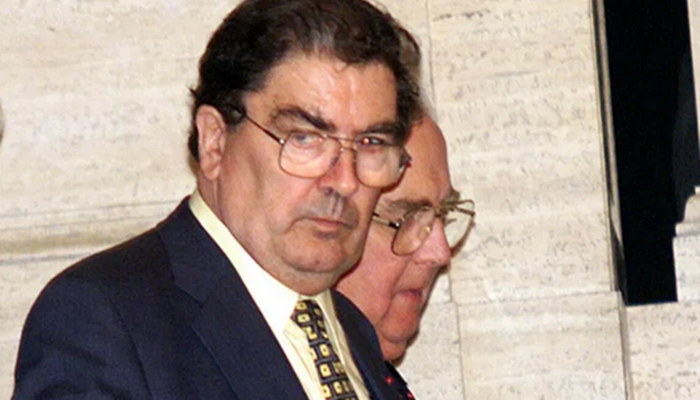
John Hume, the former Northern Ireland politician, who was awarded a Nobel Prize for his efforts to secure a peace deal in the region, has died at the age of 83.
Hume’s family said they were “deeply saddened to announce that John passed away peacefully in the early hours of the morning after a short illness,” according to a statement on Monday by the Social Democratic and Labour Party (SDLP), which Hume co-founded.
Hume shared the 1998 Nobel Peace Prize with David Trimble, who was head of the Ulster Unionist Party (UUP).
Leaders of the two biggest parties in Northern Ireland at the time, the men were awarded for their efforts to end three decades of violence in Northern Ireland via the so-called Good Friday Agreement.
Their partnership crossed the region’s ethnic and sectarian divide, with Hume’s SDLP campaigning for the non-violent unification of Northern Ireland with the Republic of Ireland and the UUP seeking to keep the region under British rule.
Speaking on RTE, Ireland’s public broadcaster, Trimble – who was the first head of the regional administration set up in Belfast after the 1998 agreement – said that “from the outset of the Troubles in Northern Ireland, he (Hume) was opposed to violence.”
Mark Durkan, a confidant of Hume’s who succeeded him as SDLP leader, described the peace agreement as being based on Hume’s “blueprint.”
Irish Prime Minister Micheal Martin described Hume as “a great hero and peacemaker” who was “one of the towering figures of Irish public life of the last century.”
British Prime Minister Boris Johnson said Hume “stood proudly in the tradition that was totally opposed to violence.”
US Secretary of State Mike Pompeo said Hume’s “integrity and courage” played “a profoundly important role in Northern Ireland’s transition from violence to peace.”
“During the darkest days of Northern Ireland’s recent past, he won the friendship and respect of countless Americans.
His early and sustained influence in bringing U.S. political and economic support to Northern Ireland cannot be overstated, and this profound partnership and friendship continues today,” Pompeo added.
Former U.S. president Bill Clinton, who pushed for the 1998 deal while in office, said: “His legacy will live on in every generation of Northern Ireland’s young people who make John’s choice, to live free of the hatred and horror of sectarian violence.”
European Commission President Ursula von der Leyen said the continent “has lost a great champion for peace.”
Former British prime minister Tony Blair, a negotiator of the Good Friday Agreement with Hume, described him as “a political titan” whose contribution to peace in Northern Ireland was “epic.”
Arlene Foster, the current head of Northern Ireland’s regional government, said Hume was “a giant in Irish nationalism” who left a “unique mark in the House of Commons, Brussels & Washington.”
Gerry Adams, the former leader of Sinn Fein, the political party previously linked to the Irish Republican Army (IRA), said that Hume played a key role in persuading armed factions to agree to ceasefires.
“John’s agreement to examine the potential of building an alternative to conflict was the mark of a political leader genuinely prepared to look at the bigger picture,” Adams said.
Hume had in recent years been in a nursing home on the outskirts of his home town – Northern Ireland’s second biggest city Londonderry, more commonly known as Derry.
Current SDLP leader Colum Eastwood said: “Derry, and the whole island, is in mourning today following the passing of our friend, leader and greatest peacemaker.”
Catholic Bishop of Derry Donal McKeown, who will preside over Hume’s funeral on Wednesday, said the late leader was “firmly rooted in his local city.” (dpa/NAN)






